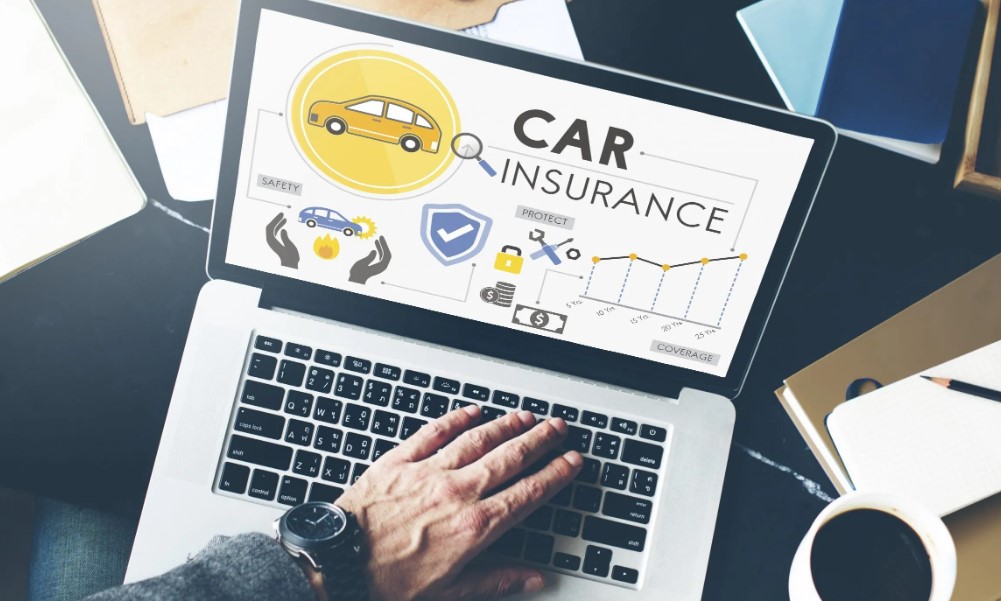How to Choose the Best Car Insurance Policy for Your Needs
When it comes to securing the right car insurance, many people focus solely on price. However, the true value of car insurance lies in the balance between cost, coverage, and the benefits you receive. Car insurance is a safeguard that protects you from potentially crippling financial losses in the event of an accident, theft, or other vehicular mishaps. This guide aims to help you make an informed decision by examining the best car insurance options for 2024, their benefits, features, and the transactional aspects of buying and using car insurance.
What is Car Insurance?

Car insurance is a contract between the insured (you) and the insurer (the insurance company). Under this contract, the insurer agrees to compensate for financial losses related to your car, accidents, or damages, in exchange for a periodic premium. The insurance typically covers damages resulting from accidents, theft, natural disasters, or other unforeseen incidents, depending on the type of coverage.
There are several types of car insurance coverage, and understanding them is crucial before selecting a plan:
1. Liability Insurance
Liability insurance is the most basic and mandatory insurance in most states. It covers damages to other people’s property or injuries caused by an accident in which you are at fault. This insurance will not cover your own damages or injuries, making it the minimum required in most regions.
2. Collision Insurance
Collision insurance covers the cost of repairing or replacing your vehicle if it’s damaged in a collision with another vehicle or object. It’s important to note that collision insurance is optional, but it can save you from large out-of-pocket expenses in the event of an accident.
3. Comprehensive Insurance
Damages to your car from theft, vandalism, natural catastrophes, and collisions with animals are covered by comprehensive insurance. Although the cost of this insurance is higher, it offers your car more security.
4. Personal Injury Protection (PIP)
PIP insurance covers medical expenses for you and your passengers regardless of who is at fault in an accident. In some cases, it may also cover lost wages and other related expenses.
5. Uninsured/Underinsured Motorist Coverage
This type of insurance protects you if you’re in an accident caused by a driver who doesn’t have insurance or doesn’t have enough insurance to cover the damages. It’s especially useful in hit-and-run scenarios or when dealing with financially irresponsible drivers.
Key Consideration of Car Insurance

Choosing the right car insurance is crucial for both legal compliance and financial protection. Here are the key considerations to help you make an informed decision:
1. Types of Coverage
The type of coverage you need is one of the most important factors to consider. Car insurance generally includes:
- Liability Insurance: Covers damage to others in an accident you caused. Most states require this as a minimum.
- Collision Insurance: Pays for damage to your car in an accident.
- Comprehensive Insurance: Covers non-accident damage such as theft, fire, or natural disasters.
- Uninsured/Underinsured Motorist Coverage: Offers protection in the event that a driver with inadequate or nonexistent insurance strikes you.
- Personal Injury Protection (PIP): Covers medical bills for you and your passengers, regardless of fault.
Assess your driving habits, vehicle value, and potential risks to decide on the right mix of coverages.
2. Cost and Premiums
The price of car insurance varies based on factors such as:
- Your Age and Driving Record: Younger drivers and those with a history of accidents or tickets usually face higher premiums.
- Location: Insurance tends to be more expensive in urban areas due to higher risks of accidents and theft.
- Vehicle Type: Luxury or sports cars typically have higher premiums, as their repair costs are more expensive.
- Coverage Levels: Opting for higher liability limits or comprehensive coverage increases your premiums but provides more protection.
It’s important to balance the coverage you need with what you can afford. Comparing multiple quotes from different insurers is essential.
3. Discounts
Most insurance companies offer discounts that can significantly reduce your premium. Common discounts include:
- Safe Driver Discounts: For drivers with clean records.
- Bundling Discounts: Combining auto insurance with other policies, such as home or renters insurance.
- Multi-Car Discounts: Insuring more than one vehicle on the same policy.
Be sure to ask about available discounts when obtaining quotes.
4. Customer Service and Claims Process
The ease of filing a claim and the customer service quality can make a big difference. Choose an insurer with a strong reputation for prompt and fair claims handling. Check online reviews and customer satisfaction scores to gauge the insurer’s reliability.
5. Policy Flexibility
Look for insurers that offer flexible payment options and the ability to adjust your coverage as your circumstances change, such as adding new drivers or vehicles to your policy.
Why is Car Insurance Important?

1. Financial Security
Accidents can happen anytime, and when they do, the costs can be astronomical. Car insurance provides a financial safety net, ensuring you aren’t burdened with the hefty costs of medical bills, vehicle repairs, or legal liabilities.
2. Legal Requirement
In most states and countries, car insurance is legally required to operate a vehicle. Without it, you could face fines, penalties, or even the suspension of your driving privileges. Liability insurance, in particular, is a common legal requirement.
3. Protects Your Investment
For most people, a car is a significant financial investment. Car insurance protects that investment by ensuring you won’t have to pay out-of-pocket for repairs or replacement if your vehicle is damaged, stolen, or totaled.
4. Peace of Mind
One of the intangible but critical benefits of car insurance is peace of mind. Knowing that you and your passengers are protected from financial loss in the event of an accident is invaluable. This peace of mind allows you to drive without constantly worrying about the potential costs of an unexpected event.
Best Car Insurance Providers in 2024

In 2024, several car insurance providers stand out for their excellent coverage options, affordable prices, and customer satisfaction. Let’s take a closer look at the top five car insurance companies and what they offer.
1. Geico
Geico is a well-known name in the car insurance industry, famous for offering competitive rates and a range of customizable coverage options. Geico’s strong online presence allows customers to easily get quotes, file claims, and manage their policies digitally.
- Website: Geico
- Price Range: $900 – $1500 annually
- Features:
- Accident forgiveness
- Emergency roadside assistance
- Multi-car discounts
- Advantages:
- Highly competitive pricing
- Excellent digital experience (mobile app, online claims)
- Strong customer satisfaction
- Disadvantages:
- Limited availability of local agents for in-person service
- Coverage may vary by state
2. State Farm
State Farm is known for its extensive network of local agents who provide personalized service to their clients. The company offers a variety of discounts, including for safe driving, and its policies can be tailored to suit the individual needs of drivers.
- Website: State Farm
- Price Range: $1000 – $1800 annually
- Features:
- Safe driver discount
- Roadside assistance
- Rental car coverage
- Advantages:
- Extensive network of local agents
- Customizable coverage options
- Numerous discounts available
- Disadvantages:
- Premiums are slightly higher compared to some competitors
- Requires interaction with local agents for some services
3. Progressive
Progressive is best known for its innovative approach to insurance, particularly through its “Name Your Price” tool, which allows customers to tailor coverage based on their budget. It’s a great option for drivers looking for flexibility in both pricing and coverage.
- Website: Progressive
- Price Range: $950 – $1600 annually
- Features:
- Name Your Price tool
- Snapshot program (monitors driving habits for discounts)
- Pet injury coverage
- Advantages:
- Flexible pricing options
- Strong mobile app and online features
- Good for high-risk drivers
- Disadvantages:
- Customer satisfaction can vary by region
- Rates can increase if you file multiple claims
4. Allstate
Allstate offers a wide range of coverage options and is particularly attractive to drivers who are looking for comprehensive coverage and multiple discounts. It’s an ideal choice for families or individuals with multiple insurance needs, as they offer bundling discounts.
- Website: Allstate
- Price Range: $1100 – $1700 annually
- Features:
- Bundling discounts (home, auto, etc.)
- Safe driver rewards program
- New car replacement coverage
- Advantages:
- Comprehensive coverage options
- Local agent availability
- Multiple discounts for bundling services
- Disadvantages:
- Premiums tend to be higher than average
- Discounts may require bundling with other insurance products
5. USAA
USAA is consistently rated as one of the top insurers for military members and their families. Its rates are highly competitive, and customer satisfaction is among the highest in the industry. However, USAA is only available to military personnel and their families, limiting its availability to the general public.
- Website: USAA
- Price Range: $850 – $1400 annually
- Features:
- Military-specific discounts and coverage
- Rental car and travel reimbursement
- Comprehensive roadside assistance
- Advantages:
- Best rates for military families
- Excellent customer service
- Comprehensive coverage options
- Disadvantages:
- Available only to military members and their families
Detailed Product Comparison
| Provider | Use Case | Advantages | Disadvantages | Price Range (Annually) | Features |
|---|---|---|---|---|---|
| Geico | Best for budget-conscious drivers | Low premiums, strong digital tools | Limited agent availability | $900 – $1500 | Accident forgiveness, roadside assistance |
| State Farm | Best for personalized service | Local agents, customizable plans | Higher premiums | $1000 – $1800 | Safe driver discounts, rental car coverage |
| Progressive | Best for flexible pricing | Customizable pricing tools | Variable customer satisfaction | $950 – $1600 | Name Your Price, Snapshot, pet injury coverage |
| Allstate | Best for families and bundling | Comprehensive coverage options | Higher premiums, bundling required | $1100 – $1700 | Bundling discounts, safe driver rewards |
| USAA | Best for military families | Low rates, top customer service | Restricted eligibility | $850 – $1400 | Military-specific coverage, travel reimbursements |
How to Buy Car Insurance
1. Online Comparison Tools
- Use comparison websites like Geico or Progressive to easily compare policies, prices, and coverage.
- Tip: Always look for discounts such as safe driver, multi-policy, or good student discounts.
2. Through a Local Agent
- Providers like State Farm and Allstate offer personalized service through local agents who can help you tailor your coverage and find the best discounts.
- Tip: If you prefer one-on-one service and help navigating policies, this is the best option.
3. Direct Purchase from Insurers
- You can buy directly from car insurance providers like USAA, which often results in lower premiums since there are no middlemen.
- Tip: When buying directly, check for exclusive offers and discounts.
Real-World Use Cases
1. Accident Coverage
Geico offers accident forgiveness, which ensures that your premiums won’t increase after your first at-fault accident. This is ideal for drivers who are concerned about long-term costs and maintaining low premiums.
2. Military Families
USAA is an excellent option for military members who want tailored coverage, including options like worldwide coverage for deployed members and family-specific discounts.
3. Drivers with Multiple Vehicles
Allstate provides bundling discounts, making it an ideal option for families with more than one car, or individuals who want to combine home and auto insurance for maximum savings.
FAQs
1. What factors influence car insurance premiums?
Several factors influence premiums, including age, driving history, location, type of vehicle, and coverage levels.
2. Is it cheaper to buy car insurance online?
Yes, buying online can often be cheaper as many insurers offer discounts for direct online purchases, eliminating the need for agents.
3. What is accident forgiveness, and do I need it?
Accident forgiveness prevents your insurance premiums from increasing after your first at-fault accident. It’s a valuable feature if you want to maintain low rates.
4. Can I switch car insurance providers mid-policy?
Yes, you can switch providers at any time, though you may need to pay a cancellation fee to your current provider. Always compare the benefits and costs of switching.
5. What should I do after an accident?
After ensuring your safety, file a claim with your insurance company as soon as possible. Take photos of the damage, collect witness information, and document everything to support your claim.